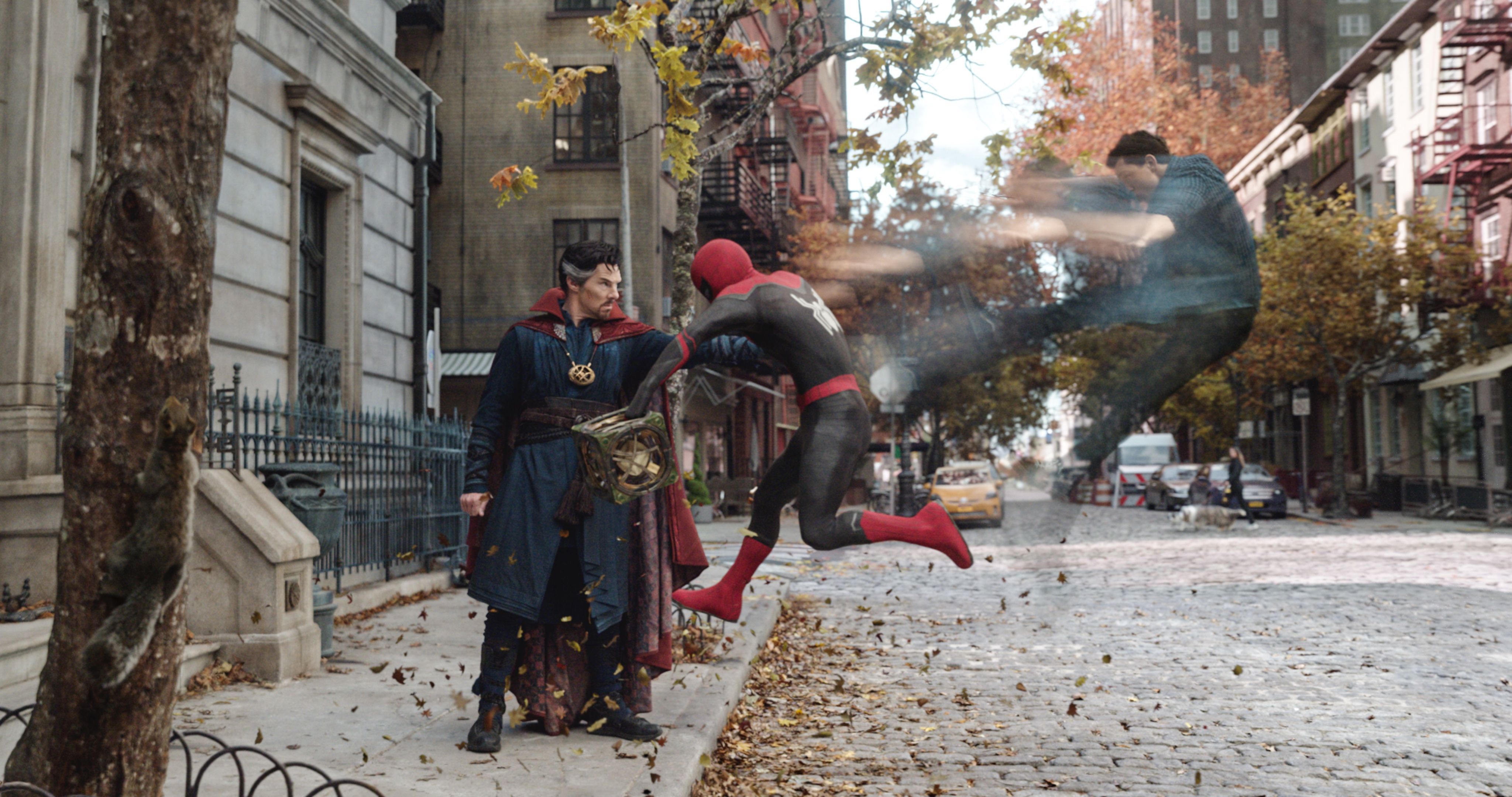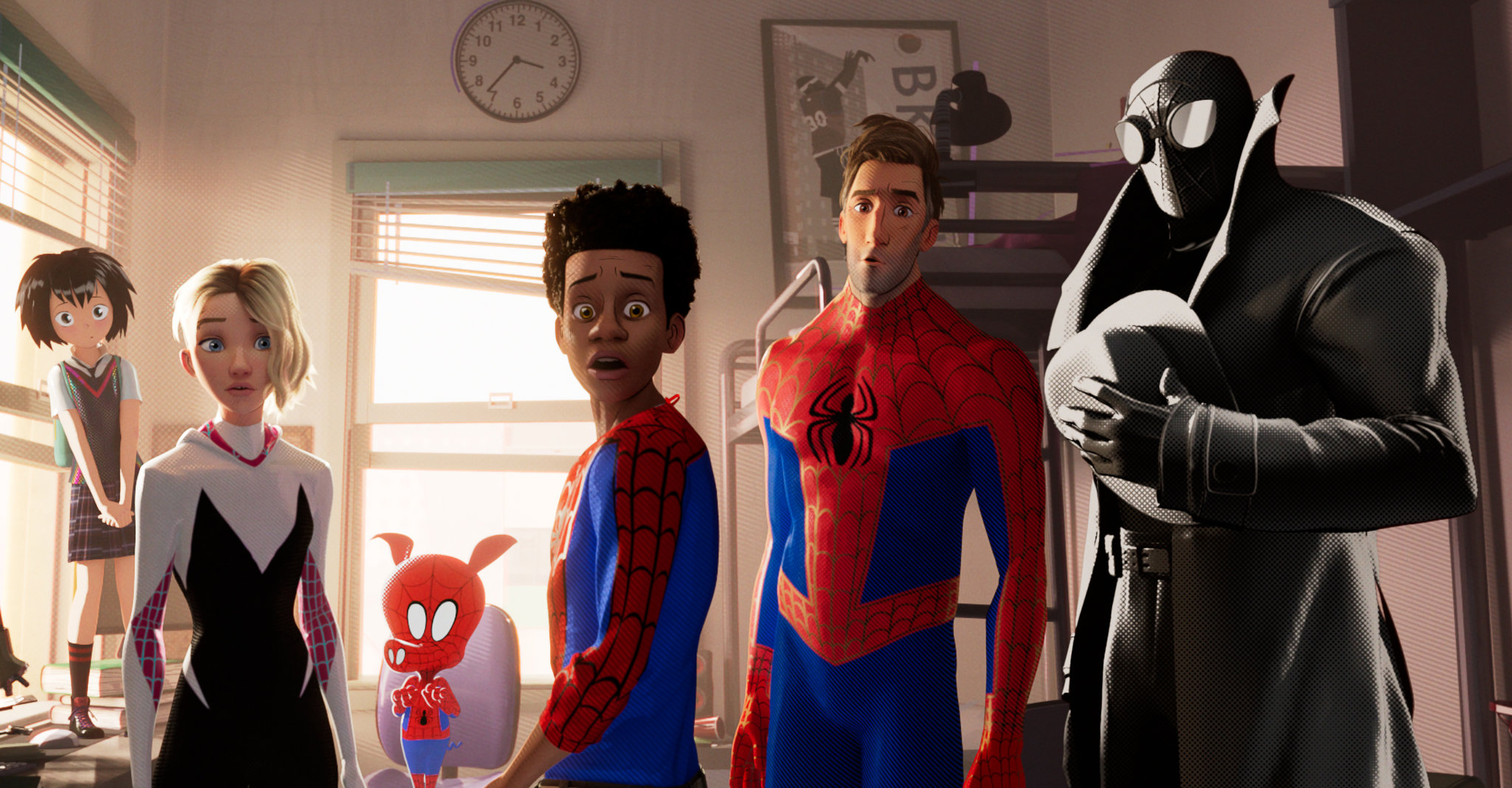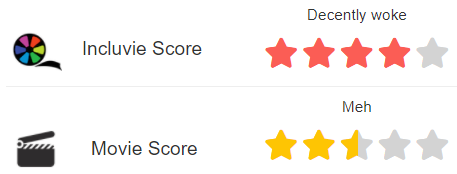The Season Three Finale of 'The Boys' Upholds Everything That Incluvie Stands For
The Season 3 finale overall upholds everything that Incluvie is primarily concerned about when it comes to media content


The year is 2002. The anticipation is high. All Marvel fans are dying of excitement. Their favourite webslinger is coming to silver screens. He’s been the subject of many animated shows over the years, and now Tobey Maguire is set to don the blue and red costume and swing through New York as he rescues his crush Mary Jane, to be played by Kirsten Dunst. Sam Raimi’s film releases and exceeds all expectations. Fans are already sure this will go down in the hall of fame of comic book films. And what’s more, it becomes a trilogy! By the third one, it’s understandable why there can’t be any more, because it’s run its ground and it’s impossible to return after the Bully Maguire memes made a mockery of the third installment. And a decade after the first Spider-Man, another up-and-coming actor, who’s just starred in Oscar-winning film The Social Network, comes back as the beloved hero. He’s naturally broody, lanky, and has the perfect athleticism for the character, but this time there’s mixed anticipation because some won’t move on from the trilogy, and some feel this could be even better. Unfortunately, there’s a pacing issue and a darkness issue, and Spider-Man’s essence is lost in the tragedy, which is, to be honest, the biggest tragedy, because Garfield’s vibe is much closer to Spider-Man, and his Peter is just the right balance between nerd and dork. After two movies, it’s shelved, and fans are starting to give up on the idea of a good closure for Spidey. But then the biggest phenomenon in comic book cinema happens, and in Captain America: Civil War, we meet the latest man to play the character. He fits the bill in every way. He’s just as comic and awkward and funky and nerdy and charming as Peter Parker, and he looks like a sixteen-year-old. And five years after his introduction, near Christmas, comes the most ambitious Spider-Man live-action project, the film that’ll hopefully provide the closure fans needed. But unlike its predecessors, it lacks heart, so forget about closure, you won’t even remember the film beyond the unforgettable fan service that Spiderman: No Way Home does for the fans, as pointed out by Daleyna in her review. It’s chock full of dream-come-true moments for Spidey fans, but its lack of substance reeks of a self-indulgence that is rare even in fan fiction.
/cdn.vox-cdn.com/uploads/chorus_image/image/68868230/Screen_Shot_2021_02_24_at_12.44.10_PM.0.png)

So why did I just revisit the journey? Because that’s what Spider-Man: No Way Home wants me to do! It even alludes to the film I left out, the only film based on Marvel Comics to win a Best Picture Academy Award, Spider-Man: Into the Spider-Verse, but we’ll come to that one later. The weight of the entire emotional journey of 19 years is unnecessarily taken on its shoulders by the latest MCU film, and as expected, it can’t carry it. Firstly, just to get this out of the way, Uncle Ben from the original trilogy owns that line, and you either quote it, or don’t say it, but making Aunt May say a modified version of the great responsibility line, is extremely tacky, especially once you realize they’re trying to recreate the original scene by making her die right after. Uncle Ben has died in both of the previous movies’ series, and in both, an expected response was elicited from the characters, but Tom’s Spider-Man isn’t sure what to feel! Yes, he’s always had issues with articulation as seen in the adorable conversation with Zendaya’s Michelle on the bridge, but he’s at least had a fleshed-out personality. Here, he seems to need to unravel but is somehow not allowed to. You can feel a certain tension in his character development, in the sense that its lack is hampering his accessibility. He’s angry, but absolutely reserved about it, he goes from crying on a rooftop to geeking out with his counterparts from the previous installments as if we can just shelf the tragedy for the moment to give the audience the fun it’s been waiting for, and altogether, his characterization is simply messy. Even the sacrifice at the end seems to come from a need from the storytellers to have him lose everything, to bring him up to speed with the tragic atmosphere from the previous films, and though it does succeed in crushing the soul, it doesn’t offer enough explanation. Whenever Dr. Strange is involved, only unbelievably ruinous consequences are on the table, it seems, that are supposed to be accepted because magic is an unknown realm we shouldn’t try to comprehend beyond the minimum information that’s offered.

The introduction of every Spider-Man villain ever, is an unnecessary move to appease the fans. Of course, we want our buddy cop moment of Garfield and Maguire and Holland all fighting Green Goblin, Doc Oc, Lizard, Electro, and Sandman, but does that really justify doing it? The Spider-Men themselves had messy arcs but that reflects on their essence of being a very common person, representing the regular making-do, despite having superpowers, and yet they did have some conclusion. Letting Andrew’s Peter catch Zendaya is an absolute joke, and no one even takes it as a sincere attempt at closure, so it’s again a crowd-pleasing tactic, which this movie doesn’t seem to lack. The same argument about conclusions goes for the supervillains as well. All of them had properly concluded stories, whether the conclusions felt organic or not. And reviving the old lore, to make Spider-Man into his Mother Theresa version we all knew was lurking under the surface, couldn’t have been done worse. There’s no emotional journey for the characters. And that’s primarily because they aren’t at junctures, they’re literally reappearing after their stories have ended. None of them seem to need to be cured, and even after they are, there’s no honest reconciliation, and it’s just an end to another Avengers: Endgame–scale affair. This is where Spider-Man: Into the Spider-Verse comes into play. There are 6 versions of Spider-Man in that film, a black kid, a white man, a young woman, a little girl from the future, a black and white Nic Cage voiceover, and a pig. Why does this ragtag team make a more compelling case? Simple. They’re all at transition points or stuck, and their role in the life of Miles Morales actually reflects on themselves and helps them grow. It’s an emotional journey on top of a cosmic scale plot. In fact, despite being decidedly more lighthearted than Sony’s other Spider-Man ventures, the animated feature actually justified making such a big deal about the characters, and that’s the kind of satisfaction you’d hope for, from Spider-Man: No Way Home. Unfortunately, the latter is only a bunch of dream-come-true moments with barely anything real to say about the world or about the characters. It’s just there as ‘a love-letter to the fans’, to quote Daleyna’s review I cited earlier.

Tobey Maguire, Willem Dafoe, Alfred Molina, Andrew Garfield, all the actors do a brilliant job of picking up from where they left off. Maguire’s Peter looks just like he did at the ending of Spider-Man 3, finally coming into his own, but definitely hiding his identity, and still unsure what his role as Spider-Man is, in the large scheme of things. Dafoe is even more nuanced than before, bringing down the distinction between good and evil to subtle tics. The way they showed that off by having Peter’s senses tingle for what felt like ages before realizing Osborn had gone into Goblin-mode, was nevertheless very unnecessary. It felt like the film was insincerely pandering to us, to desperately remind us of what the original films felt like. In fact, there are tons of gimmicks, and apart from Dafoe’s revival of the ‘I’m somewhat of a scientist myself’ line, there’s barely any ode to the existing Spider-Man content that felt worth waiting for. Except, of course, the group huddle between the three Spider-Men. Their banter felt organic in the moment because Maguire and Garfield were able to completely go back into character, but there aren’t many memorable moments even with the trio. And as always, the humour is too desperate, except maybe the laughter at Otto’s name or the ‘You know what’s cooler than magic? MATH!’ line from Holland. One thing they got absolutely right was Cox’s introduction as Matt Murdock and I lost my mind when the familiar black holding loop from behind his stick was shown as the camera turned to reveal the man’s face. And the worst betrayal was Venom. It’d have been better to omit him even. To bring in Tom Hardy as the fan favourite villain, just to have a few laughs and remind us how we weren’t given the interaction between Tobey and the new anti-hero form of Venom, and to set up something by leaving a few drops of the Symbiote, is again a classic trope of MCU’s underestimation of its audience. We’re not all desperate kids looking for shenanigans. Some of us have been around since Iron Man, and we would like rewards for the investment beyond Endgame in the form of meaningful words and stories, not parlour tricks and references.
NO MORE SPOILERS AHEAD

To conclude, Spider-Man: No Way Home is a traditionally post-Endgame MCU film, that is, another wannabe Endgame that’s only for fans to enjoy once and then leave in the roster. It’s got scenes worth rewatching a million times to fulfill all your fandom needs, but don’t expect closure or growth or even connection at this point. It’s almost an insult to the precursors because they definitely delivered on their promises of bringing the essence of Spider-Man to life. Spider-Man is a friendly-neighbourhood hero, the guy who stays on the lookout at a small level, the man who has very human and relatable problems and is somehow grinding his way even through life as a superhero. It’s because Peter is so grounded and has a personality not like the sass kings and queens of the Avengers, that he’s the most beloved hero of all time, and No Way Home is way too cosmic an affair to maintain that little-things tone any fan would naturally associate with Spidey. The one thing it’s able to do, is make you nostalgic, although it doesn’t last long because there’s not much of Sam Raimi or Marc Webb, and too much Jon Watts. If you were hoping to come out of the theaters and feel like this is Spider-Man’s world and we’re all just living in it, you probably won’t, I’m sorry to say. Hopefully, the Into the Spider-Verse sequel coming out next year will do that. Nevertheless, you’ll recall what life was like when Tobey was Spidey, and the trip down memory lane with Molina and Dafoe is a sweet one, especially because we’ve all felt Goblin deserved more screen time. His role here isn’t an appreciative tribute, and you may be disappointed with the way the characters are treated, but the film is worth watching as a Spidey fan. There isn’t much left to say about the film, except that they were doing a good job in the first half of changing the tone of Spider-Man’s universe in the MCU from fun to dark. However, there are too many jokes and not enough moments of sincerity to process the emotional toll by the time intermission rolls in, and while you’ll no doubt be reminded of the visuals of Garfield’s Peter fighting the Lizard, there’s not much room for drowning in the tragic vibes associated with The Amazing Spider-Man. Doc Oc is also criminally underused, and his first scene had the potential to go to the levels of the bank robbery scene from Spider-Man 2, but it wasn’t nearly as compelling because of the Tom-foolery, pun intended.

With great power comes great responsibility, but MCU has been rather irresponsible in dealing with my favourite superhero and his stories outside their cinematic universe. This doesn’t sit well with me, and unless you’re a starved fan desperately looking for comic-con level fan service, I’d even recommend skipping this and just cherishing the films already at hand. At least don’t go into the film expecting any meaningful connection, although that probably applies to all things MCU at this point. It’s a lot of fun as a fan event though.

Related lists created by the same author
The Season 3 finale overall upholds everything that Incluvie is primarily concerned about when it comes to media content